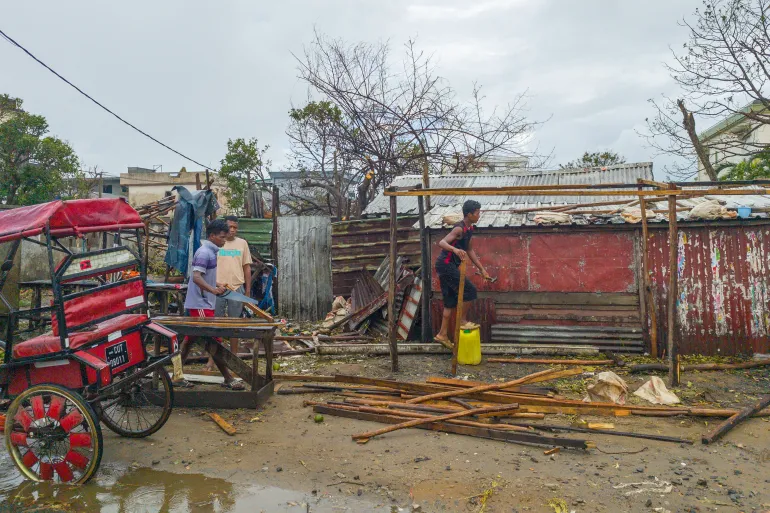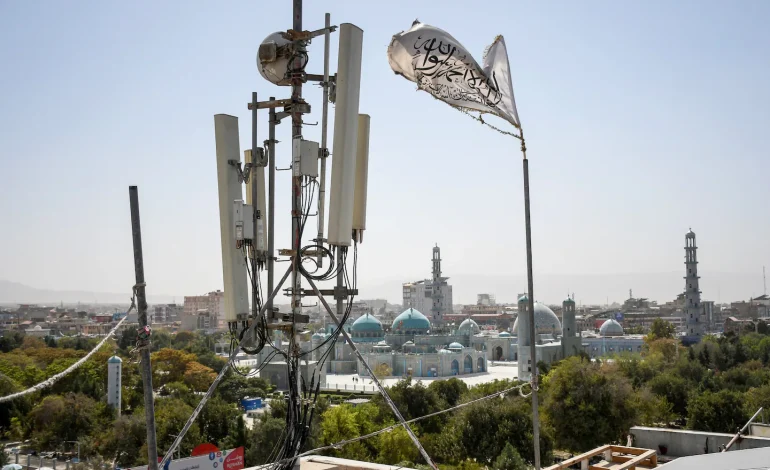The Taliban insists it didn’t pull the plug. Three days into a near-total communications collapse that’s crippled everything from banking to air travel, the group’s first public line is that Afghanistan’s internet went down because of “old” fiber-optic cables being replaced — not a government order.
In a statement carried by the Taliban’s Urdu-language site Al-Emarah, spokesman Zabihullah Mujahid blamed “rumors” about an internet ban and said they weren’t true. The message landed awkwardly across a country of more than 40 million where calls don’t go through, messaging apps show a single gray check, and businesses are shuttered.
“We don’t understand what’s happening in the country,” a senior Taliban official in Kabul told NBC News privately. “Nobody is telling us as majority of the people don’t have access to each other.”
Independent monitors describe something far more sweeping than routine maintenance. NetBlocks reported a “stepwise” nationwide telecoms disruption on Monday that quickly turned into a “total internet blackout.” By midweek, airports were canceling flights, consulates were stuck without visa systems, and Kabul’s money-exchange market was trying to trade off Monday’s prices because fresh rates couldn’t be pulled. Overland trade felt it too: Pakistan’s cross-border transport with Afghanistan largely stalled, leaving hundreds of loaded trucks stranded on either side.
For Afghans abroad, the silence has been brutal.
“The blackout has created a deep sense of isolation and further silenced those already struggling to be heard,” said Sofia Ramyar, an Indiana-based adviser to Afghans for Progressive Thinking who left in 2020 and hasn’t been able to reach family in Kabul.
Another exile in Chicago described watching messages to his siblings sit unsent for days:
“I don’t know what happened to my country, what happened to my family.”
Aid groups say their operations have been knocked sideways just as the country faces overlapping economic and humanitarian crises. The UN urged authorities to “immediately and fully restore nationwide Internet and telecommunications access,” warning the shutdown threatens banking, medical care and emergency response. Save the Children called reliable communications “essential” to deliver life-saving help and coordinate with partners.
The politics behind the blackout remain murky. Provincial officials telegraphed restrictions last month when several regions said high-speed connections would be cut “to prevent vice,” echoing earlier Taliban crackdowns tied to morality policing. Hard-liners based in Kandahar have steadily tightened controls on public life, particularly for women and girls, who have relied on online classes and remote work after being barred from most education and jobs. Cutting the internet effectively severs one of their last lifelines.
There were flickers of relief late Wednesday, with residents reporting some mobile service returning in Kabul and other cities and NetBlocks noting signs of partial restoration. A Taliban information official attributed the outage to technical issues and promised a quick fix, while offering no detailed explanation for why both internet and phone networks collapsed in tandem nationwide.
Whether this was an infrastructure hiccup or a deliberate show of control, the impact is the same: a modern economy frozen, families cut off, and a regime that says the lines are fine while the country’s phones stay quiet.
BBC, NBC News, the Washington Post, and Reuters contributed to this report.










The latest news in your social feeds
Subscribe to our social media platforms to stay tuned